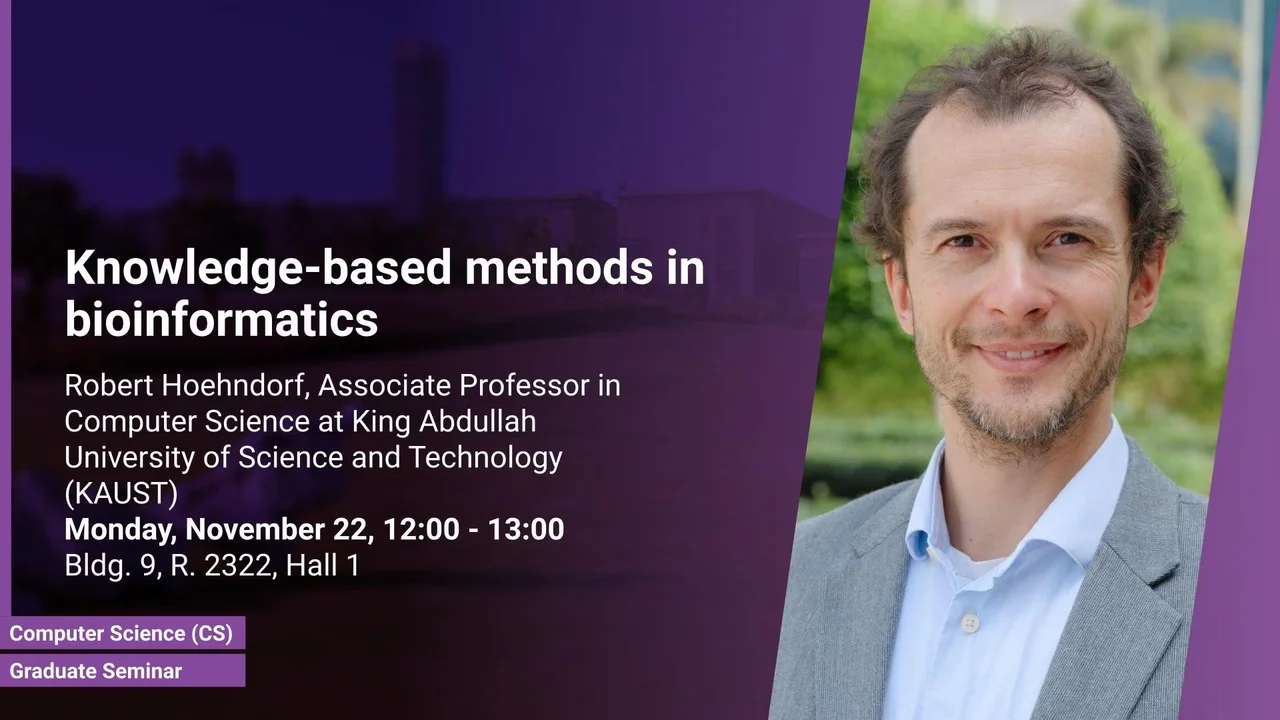
Knowledge-based methods in bioinformatics
B9 R2322 H1
The life sciences have invested significant resources in the development and application of semantic technologies to make research data accessible and interlinked, and to enable the integration and analysis of data. Utilizing the semantics associated with research data in data analysis approaches is often challenging. Now, novel methods are becoming available that combine symbolic methods and statistical methods in Artificial Intelligence. In my talk, I will show how to incorporate biological background knowledge in machine learning models for identification of gene-disease associations, genomic variants that are causative for heritable disorders, and to predict protein functions. The methods I describe are generic and can be applied in other domains in which biomedical ontologies and structured knowledge bases exist.
Overview
Abstract
The life sciences have invested significant resources in the development and application of semantic technologies to make research data accessible and interlinked, and to enable the integration and analysis of data. Utilizing the semantics associated with research data in data analysis approaches is often challenging. Now, novel methods are becoming available that combine symbolic methods and statistical methods in Artificial Intelligence. In my talk, I will show how to incorporate biological background knowledge in machine learning models for identification of gene-disease associations, genomic variants that are causative for heritable disorders, and to predict protein functions. The methods I describe are generic and can be applied in other domains in which biomedical ontologies and structured knowledge bases exist.
Brief Biography
Robert Hoehndorf is an Associate Professor in Computer Science at King Abdullah University of Science and Technology (KAUST) in Thuwal. Prior to joining KAUST, Robert had research positions at Aberystwyth University, the University of Cambridge, the European Bioinformatics Institute, and the Max Planck Institute for Evolutionary Anthropology. His research focuses on the development and application of knowledge-based algorithms in biology and biomedicine.
